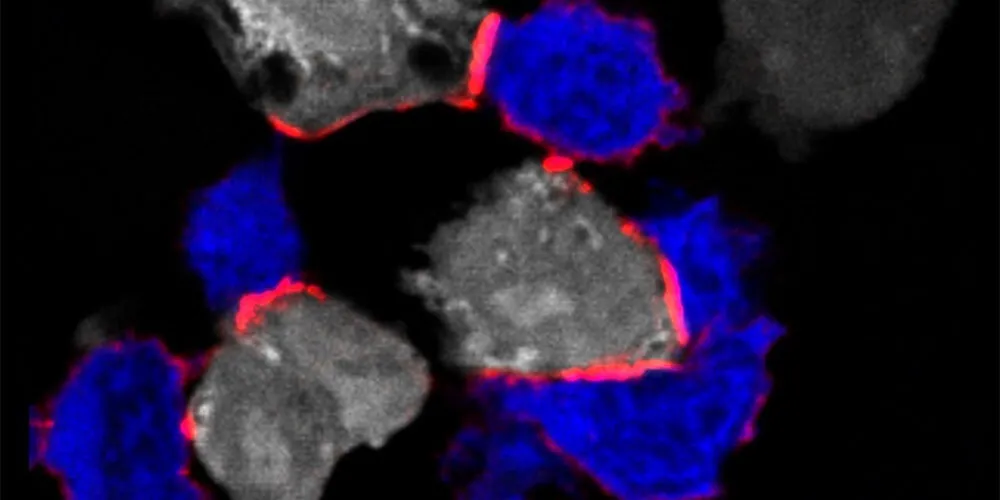People with magnesium deficiency have poor anti-cancer ability! How to be an "Mg" eater?
Many people think about supplementing calcium, vitamin D, and even iron when supplementing nutrition, but few people think about supplementing magnesium.
But in fact, magnesium is needed for many activities in the human body: activating muscles and nerves, increasing body energy, digesting protein, carbohydrates, and fats, etc.

Magnesium deficiency can cause 21 conditions including anxiety and asthma.
Study finds that magnesium may help immune cells fight cancer
On January 19, 2022, a research team from the University of Basel in Switzerland published a study in the American journal “Cell”, showing that T cells can help immune cells fight cancer in a magnesium-rich environment.

The experiment provided mice with cancer cells in a diet deficient in magnesium ions, and found that the cancer cells in the mice spread faster, and then supplemented with a diet containing magnesium ions, and found that the immune capacity of the mice was enhanced.
Further analysis found that in an environment rich in magnesium ions, magnesium binds to the T cell surface protein LFA-1, thereby increasing the immune capacity of T cells and effectively resisting cancer cells.

T cells (blue) form immune synapses through LFA-1 to attack tumor cells (white)
Experiments show that:
Low levels of magnesium in serum have poor immunity;
Tumors locally increased magnesium levels, and T cells enhanced immune responses to cancer cells.
Using data from an earlier study in cancer patients, the researchers re-analyzed it and found that immunotherapy was less effective in patients with insufficient blood levels of magnesium.
Therefore, magnesium may be able to act as a “right-hand man” for the human immune system and play a role in promoting cancer treatment.
The body sends these signals when magnesium is deficient
In life, many people will have symptoms such as insomnia, depression, anorexia, and fatigue, which may be due to magnesium deficiency in the body. Magnesium is one of the essential minerals in the human body. When magnesium is deficient, the body will prompt 7 signals:

Difficulty falling asleep
Magnesium helps to increase levels of a neurotransmitter in the brain called gamma-aminobutyric acid (GABA), which promotes relaxation and sleep, helping to relieve sleep disorders.
Depression
Magnesium can improve human hormone regulation and brain serotonin levels, which is beneficial to blood sugar balance. Brain serotonin is essential for maintaining emotional stability, so magnesium deficiency is more prone to depression and anxiety.
Migraine
“European Journal of Neuroscience Research” has published research that magnesium can effectively reduce the severity and frequency of migraine symptoms, which is related to magnesium’s ability to regulate hormones and relax muscles.
Eyelid jump
One of the most common manifestations of magnesium deficiency is eyelid twitching. This is because magnesium regulates muscle movement, and when magnesium levels in the body are low, muscle spasms and twitching occur in many parts of the body.
Abnormal heart rhythm
Magnesium helps maintain a normal heart rhythm. Doctors give magnesium supplements intravenously to reduce atrial fibrillation and arrhythmias because magnesium reduces levels of nutrients such as calcium.
Always feel tired
Magnesium is an essential element of the human body’s energy production system, and the human body needs magnesium to generate adenosine triphosphate for energy production.
Prone to skin problems
Magnesium reduces inflammation in the body that can lead to skin conditions like acne, eczema, psoriasis, and more. Magnesium also regulates vitamin D levels and maintains healthy skin.
6 types of people are prone to lack of “magnesium”
Insufficient magnesium intake, malabsorption, or increased excretion can lead to magnesium deficiency, causing loss of appetite, nausea, vomiting, fatigue, and weakness.
With the increase of the deficiency, numbness, tingling, muscle spasm, arrhythmia, etc. may also occur, and even lead to hypocalcemia and hypokalemia. There are 6 types of people who are easy to be recruited:

Calcium supplement population
After middle age, calcium loss is faster than calcium deposition. The risk of osteoporosis is increased, and many middle-aged and elderly people will supplement calcium, but high calcium will competitively inhibit the absorption of magnesium.
Unbalanced diet
Middle-aged people tend to gain weight. People who don’t have time to exercise will lose weight by dieting, and hunger will affect the intake of magnesium. Some middle-aged people don’t like meat, but a high-protein diet will reduce the absorption rate of magnesium.
Strong tea drinkers
The caffeine in strong tea contains a diuretic component that increases magnesium loss.
People with diabetes
Middle-aged and elderly people are a high-risk group of diabetes. Diabetes increases the excretion of magnesium, and magnesium deficiency, in turn, reduces the working efficiency of insulin, forming a vicious circle.
People who take certain drugs for a long time
Some drugs such as bisphosphonates and tetracycline antibiotics can affect the absorption of magnesium, and some diuretics (such as furosemide, hydrochlorothiazide tabletsdiureticic acid) can increase the excretion of magnesium.
Frequent drinkers
Alcohol abuse can cause pancreatitis, alcoholic ketoacidosis, etc., and increase the excretion of magnesium. Long-term excessive drinking can easily lead to serious loss of magnesium.
To become a “magnesium” eater should do:
Eat green leafy vegetables
Leafy greens are the richest in magnesium, followed by whole grains, nuts, meat, and milk.
However, green leafy vegetables contain oxalic acid, which affects magnesium absorption, and whole grains contain phytic acid, which affects magnesium absorption. It is recommended to blanch the vegetables in boiling water before cooking them; when cooking coarse grains, soak them for a while in advance.
There is no need to take magnesium supplements if you
Drinking milk every day, eating meat, and eating more “magnesium” foods can fully meet the body’s magnesium needs, and there is no need to take magnesium supplements.
Avoid these drinks
Avoid beverages that cause magnesium loss in the body, such as alcohol, strong tea, coffee, etc., and drink plenty of water.
A balanced and varied diet
Usually moderate intake of fruits and vegetables, with staple food thickness. Reduce high-salt, high-fat diets.
If necessary, magnesium supplements can be taken in moderation under the guidance of a doctor. It is recommended that the calcium and magnesium intake ratio should be maintained at 1:1.
For children and the elderly, magnesium is more important than calcium; if the kidneys are not functioning well, magnesium supplementation must be evaluated by a doctor.